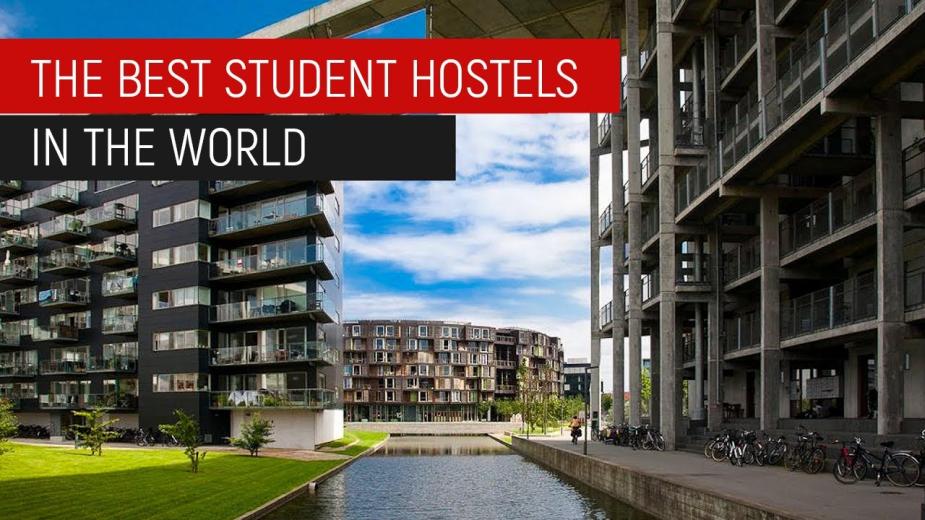Are you going to study abroad, but do not know how to solve the issue of housing in another country? For some foreign students, this issue is solved automatically: schools, institutes, colleges and universities provide them with places in their own residences and boarding houses. Another option is to search for and rent an apartment on your own. One of the most popular alternatives to living on campus is to stay with a host family.
Host families are locals who provide temporary accommodation to international students. Usually, host families participate in exchange programs, study trips, language courses or volunteer projects. Their main tasks are to create comfortable conditions, provide support, and help foreigners immerse themselves in the local culture and language.
A visitor to the country also benefits its temporary landlords: they can learn something new about the culture and traditions of their foreign tenant. It turns out to be a home international exchange of knowledge!
In order for a complete match between the student and the host family, specialized housing agencies or specialized experts of educational centers carefully select candidates for the host family list. We tell you how it happens.

6 criteria for selecting host families and the process itself
Potential host families, as well as their future residents, first submit their questionnaires to specialized structures, these applications are processed, and the personal files of family members are subject to an assessing analysis, during which company employees check their compliance with the requirements and criteria. As general indicators, the following are usually assessed:
- Safety and reliability of the family. They check biographies and references, for example, the absence of a criminal record, interview candidates to assess their readiness and responsibility.
- Program eligibility. They check the availability of a free room and living conditions for the student, clarify the readiness to comply with the rules and agreements acceptable to all parties.
- Respect for other cultures and a desire to help the student adapt.
- Willingness to be patient with people who do not know the local language well.
- Compatibility of the family's schedule and lifestyle with the requirements of the student's academic program.
- The convenience of the location of the house in relation to educational institutions and transport, the safety of the area as a whole.

After all candidates pass the check and a list of families who have passed the next stage of preparation for the reception of a foreign guest is formed, preparation begins. Usually, it takes place in the format of instruction on the rules of residence of foreign students and cultural exchange, the main nuances and details of temporary neighborhood are discussed. Some agencies conduct a more complete and intensive preparation course, when future host families attend lectures and seminars, do homework.
When the host families complete the preparations, they are asked to formalize an agreement that includes the obligations of the parties, the rules of residence and the terms of compensation (if any). After signing the papers, local residents enter the home stretch and begin to get acquainted with potential guests of their home. Typically, this takes place in an online interview format, with international students communicating with host families one-on-one or in the presence of an intermediary agent. After the dialogue, both parties tell the employee their impressions — and their willingness or unwillingness to live together.
Features of the host family sample in different countries

We talked about the general rules for the selection of host families, which are followed by almost all European and English-speaking countries. But at the same time, each country has its own personal conditions and requirements for candidates for the host family list.
United States of America:
- Very strict security checks: criminal statistics, recommendations from family members, colleagues, friends, neighbors.
- Great importance is attached to lifestyle compatibility and respect for cultural differences.
United Kingdom:
- The check is carried out not only documentary, but also physical, that is, they come and thoroughly inspect the entire house of the candidates.
- Families must undergo preparatory trainings in intercultural communication.
Germany:
- Strict requirements for vetting candidates, including tax and legal aspects.
- Multicultural families are preferred, especially in big cities.
France:
- Great importance is attached to the willingness to help students integrate into French culture.
- Preference is given to traditional couples and families with children of different ages.
Japan:
- Particular attention is paid to the respect, honesty and responsibility of applicants.
- Be sure to conduct a personal interview with the family and a visit to the house.
Australia:
- Open to different types of host families, including single parents, seniors, and large families.
- Very strict checks for compliance with standards of comfortable living.
6 recommendations for what to look for as a foreign student when choosing your host family

Not only host families have the right to prepare for the reception of a foreign guest - students can also choose who they are ready to live with during their studies and with whom they are not. If you have not previously encountered this format of accommodation abroad, then use our recommendations on how not to make a mistake with the choice of host family:
- Find out about the reputation of the family: whether there are reviews or recommendations from other international students. Ask potential landlords themselves about their previous experiences with international students.
- Make sure that the host family has successfully passed all the necessary checks.
- Clarify the details about the daily regimen, house rules, eating and leisure features, talk about the traditions and customs of the family to understand how comfortable you will feel.
- Check the availability of a comfortable room and the necessary conditions for study and rest: ask to show them in a video or send a photo.
- Be sure to discuss whether you, as a tenant, will have additional costs, such as food, laundry, or utility bills.
- Think about your personal preferences in advance: having pets, children or the elderly, etc.








